Life
10 Superfoods That Will Boost Your Brain Power
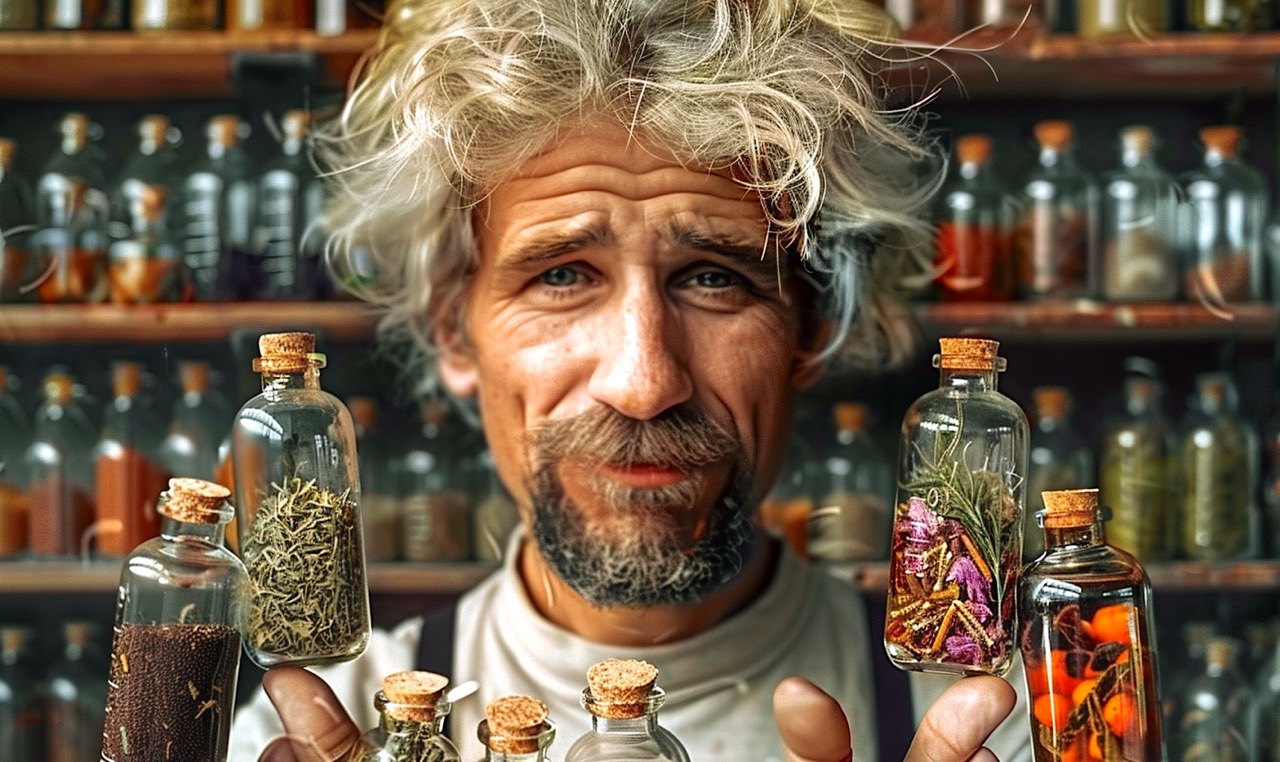
We all know that we need to eat the right diet for the good of our physical health. With the right diet, we can lose weight and strengthen the muscles in our body. But did you know that with the right foods, you can become smarter? That’s right, adding superfoods to your diet can do you wonders. It’s not common to think about foods that could benefit our brain, but it’s something we need to consider.
A boost in brain power can enhance your memory, sharpen your reflexes, improve your attention span, and ward off mental illnesses such as Alzheimer’s, dementia, and more.
Including these 10 superfoods in your daily meal plan will help your brain remain strong and will enhance your mental performance dramatically.
10 Powerful Superfoods To Strengthen Your Mind
1. Acai
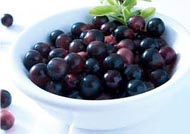 Known as one of the truest superfoods, acai is packed with antioxidants with ORAC, omega-3, vitamins, and protein.
Known as one of the truest superfoods, acai is packed with antioxidants with ORAC, omega-3, vitamins, and protein.
Acai has been known to enhance brain health and improve cognitive abilities as well as reduce the risk of diseases.
2. Kale
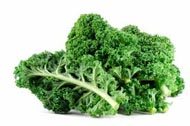 This leafy green exploded in popularity recently and is known as one of the most nutrient-dense foods known to man and one of the top foods for brain health.
This leafy green exploded in popularity recently and is known as one of the most nutrient-dense foods known to man and one of the top foods for brain health.
Kale is loaded with vitamin C, vitamin K, and vitamin A as well as phytonutrients (antioxidants) and signalling molecules that help decrease inflammation of the body.
3. Goji Berries
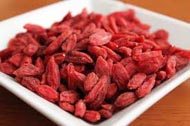 Goji berries are an excellent superfood for boosting brain power because they improve the sharpness of your brain and help you retain information more efficiently.
Goji berries are an excellent superfood for boosting brain power because they improve the sharpness of your brain and help you retain information more efficiently.
Goji berries also help in reducing damaging inflammation of the brain as well as reduce the accumulation of toxins in the brain.
4. Spirulina
 Spirulina is known as one of the most concentrated source of protein and an excellent alternative for those who are wishing to eliminate meat from their diet.
Spirulina is known as one of the most concentrated source of protein and an excellent alternative for those who are wishing to eliminate meat from their diet.
Spirulina also has many cognitive benefits! It reduces degeneration of the brain and prevents brain damage. What’s even cooler about Spirulina is that studies have shown that it can actually reverse damage done to the brain from aging.
5. Cacao
 Great news! Cacao, aka chocolate has tons of minerals and nutrients that boost the body’s neurotransmitters and creates that pleasant feeling that many experience when they eat chocolate. But here’s the catch, when you eat chocolate that’s been cooked or processed, the cacao’s nutritional value is lost.
Great news! Cacao, aka chocolate has tons of minerals and nutrients that boost the body’s neurotransmitters and creates that pleasant feeling that many experience when they eat chocolate. But here’s the catch, when you eat chocolate that’s been cooked or processed, the cacao’s nutritional value is lost.
Cacao contains amazing levels of Vitamin C, something you find 0% of in a normal chocolate bar! Raw cacao is where the nutrients are at and are extremely effective in fighting against memory loss. You can try eating Cacao nibs mixed with Goji berries for a pleasant taste!
6. Maca
 Maca is a superfood that is related to the radish and is grown in the Andes mountains. It can survive higher elevations and has proven to be a strong food that can survive the elements.
Maca is a superfood that is related to the radish and is grown in the Andes mountains. It can survive higher elevations and has proven to be a strong food that can survive the elements.
Maca has been known to improve the brains neurochemistry and helps fight against depression, stress, and anxiety.
7. Coconut
 Coconut has gained the reputation of being one of the best fuels to enhance healthy brain function due to it being a rich source of medium chain triglycerides (MCT). MCT go straight to your liver to be processed into ketones, and then sent to the brain to be used for fuel.
Coconut has gained the reputation of being one of the best fuels to enhance healthy brain function due to it being a rich source of medium chain triglycerides (MCT). MCT go straight to your liver to be processed into ketones, and then sent to the brain to be used for fuel.
By providing a stable fuel supply, coconut is considered to be great fuel for your brain and supporting your brain’s learning capabilities and memory retention.
8. Broccoli
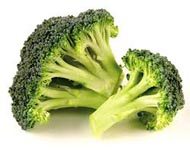 Scientists have recently discovered a compound in broccoli known as sulforaphane, which has been shown to help protect the brain after there’s been an injury and actually improve the brain’s performance.
Scientists have recently discovered a compound in broccoli known as sulforaphane, which has been shown to help protect the brain after there’s been an injury and actually improve the brain’s performance.
9. Beans
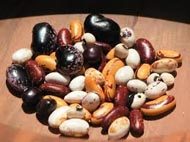 Beans help stabilize blood glucose levels, and the brain depends on glucose for food. Not only is it economical, but it provides the brain with a steady source of energy and helps prevent crashes.
Beans help stabilize blood glucose levels, and the brain depends on glucose for food. Not only is it economical, but it provides the brain with a steady source of energy and helps prevent crashes.
Beans have been shown to improve the brain’s concentration and stamina.
10. Chia Seeds
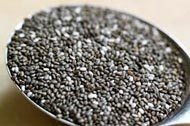 Chia seeds are the latest trend in the superfood industry. However, they are known as the staple food for the Mayans and Aztecs, who used chia seeds for many dietary needs such as flour, oil, and an add-on for water. Chia means “strength” in the Mayan language and was considered to be a magical food because it provided much needed energy and stamina for the brain.
Chia seeds are the latest trend in the superfood industry. However, they are known as the staple food for the Mayans and Aztecs, who used chia seeds for many dietary needs such as flour, oil, and an add-on for water. Chia means “strength” in the Mayan language and was considered to be a magical food because it provided much needed energy and stamina for the brain.
Chia Seeds contain an enormous amount of omega-3, calcium, antioxidants, iron, protein, fiber, and potassium.
If the foods on this list don’t tickle your taste buds, there are many other ways to implement these foods into healthy and tasty recipes.
As well as the superfoods listed above, there are many more Super Foods that help fight against harmful effects and prevent damage to your brain.
Did You Know
How Skilled Migrants Are Building Successful Careers After Moving Countries
Behind every successful skilled migrant career is a mix of resilience, strategy, and navigating systems built for locals.

Moving to a new country for work is exciting, but it can also be unnerving. Skilled migrants leave behind familiar systems, networks, and support to pursue better job opportunities and a better future for their families. (more…)
Life
10 Research-Backed Steps to Create Real Change This New Year
This New Year could finally be the one where you break old patterns and create real, lasting change.

Every New Year, we make plans and set goals, but often repeat old patterns. (more…)
Life
9 Harsh Truths Every Young Man Must Face to Succeed in the Modern World
Before chasing success, every young man needs to face these 9 brutal realities shaping masculinity in the modern world.

Many young men today quietly battle depression, loneliness, and a sense of confusion about who they’re meant to be.
Some blame the lack of deep friendships or romantic relationships. Others feel lost in a digital world that often labels traditional masculinity as “toxic.”
But the truth is this: becoming a man in the modern age takes more than just surviving. It takes resilience, direction, and a willingness to grow even when no one’s watching.
Success doesn’t arrive by accident or luck. It’s built on discipline, sacrifice, and consistency.
Here are 9 harsh truths every young man should know if he wants to thrive, not just survive, in the digital age.
1. Never Use Your Illness as an Excuse
As Dr. Jordan B. Peterson often says, successful people don’t complain; they act.
Your illness, hardship, or struggle shouldn’t define your limits; it should define your motivation. Rest when you must, but always get back up and keep building your dreams. Motivation doesn’t appear magically. It comes after you take action.
Here are five key lessons I’ve learned from Dr. Peterson:
-
Learn to write clearly; clarity of thought makes you dangerous.
-
Read quality literature in your free time.
-
Nurture a strong relationship with your family.
-
Share your ideas publicly; your voice matters.
-
Become a “monster”, powerful, but disciplined enough to control it.
The best leaders and thinkers are grounded. They welcome criticism, adapt quickly, and keep moving forward no matter what.
2. You Can’t Please Everyone And That’s Okay
You don’t need a crowd of people to feel fulfilled. You need a few friends who genuinely accept you for who you are.
If your circle doesn’t bring out your best, it’s okay to walk away. Solitude can be a powerful teacher. It gives you space to understand what you truly want from life. Remember, successful men aren’t people-pleasers; they’re purpose-driven.
3. You Can Control the Process, Not the Outcome
Especially in creative work, writing, business, or content creation, you control effort, not results.
You might publish two articles a day, but you can’t dictate which one will go viral. Focus on mastery, not metrics. Many great writers toiled for years in obscurity before anyone noticed them. Rejection, criticism, and indifference are all part of the path.
The best creators focus on storytelling, not applause.
4. Rejection Is Never Personal
Rejection doesn’t mean you’re unworthy. It simply means your offer, idea, or timing didn’t align.
Every successful person has faced rejection repeatedly. What separates them is persistence and perspective. They see rejection as feedback, not failure. The faster you learn that truth, the faster you’ll grow.
5. Women Value Comfort and Security
Understanding women requires maturity and empathy.
Through books, lectures, and personal growth, I’ve learned that most women desire a man who is grounded, intelligent, confident, emotionally stable, and consistent. Some want humor, others intellect, but nearly all want to feel safe and supported.
Instead of chasing attention, work on self-improvement. Build competence and confidence, and the rest will follow naturally.
6. There’s No Such Thing as Failure, Only Lessons
A powerful lesson from Neuro-Linguistic Programming: failure only exists when you stop trying.
Every mistake brings data. Every setback builds wisdom. The most successful men aren’t fearless. They’ve simply learned to act despite fear.
Be proud of your scars. They’re proof you were brave enough to try.
7. Public Speaking Is an Art Form
Public speaking is one of the most valuable and underrated skills a man can master.
It’s not about perfection; it’s about connection. The best speakers tell stories, inspire confidence, and make people feel seen. They research deeply, speak honestly, and practice relentlessly.
If you can speak well, you can lead, sell, teach, and inspire. Start small, practice at work, in class, or even in front of a mirror, and watch your confidence skyrocket.
8. Teaching Is Leadership in Disguise
Great teachers are not just knowledgeable. They’re brave, compassionate, and disciplined.
Teaching forces you to articulate what you know, and in doing so, you master it at a deeper level. Whether you’re mentoring a peer, leading a team, or sharing insights online, teaching refines your purpose.
Lifelong learners become lifelong leaders.
9. Study Human Nature to Achieve Your Dreams
One of the toughest lessons to accept: most people are self-interested.
That’s not cynicism, it’s human nature. Understanding this helps you navigate relationships, business, and communication more effectively.
Everyone has a darker side, but successful people learn to channel theirs productively into discipline, creativity, and drive.
Psychology isn’t just theory; it’s a toolkit. Learn how people think, act, and decide, and you’ll know how to lead them, influence them, and even understand yourself better.
Final Thoughts
The digital age offers endless opportunities, but only to those who are willing to take responsibility, confront discomfort, and keep improving.
Becoming a man today means embracing the hard truths most avoid.
Because at the end of the day, success isn’t about luck. It’s about who you become when life tests you the most.
Change Your Mindset
The Four Types of Happiness: Which One Are You Living In?
Most people chase success only to find emptiness, this model reveals why true happiness lies somewhere else.

In a world driven by rapid technological growth and constant competition, many people unknowingly trade joy for achievement. (more…)
-

 News2 weeks ago
News2 weeks agoBrandon Willington Builds 7-Figure Business by Ignoring Almost Everything
-

 Health & Fitness3 weeks ago
Health & Fitness3 weeks agoWhat Minimalism Actually Means for Your Wellness Choices
-

 Did You Know2 weeks ago
Did You Know2 weeks agoWhy Most Online Courses Fail and How to Fix Them
-

 Business2 weeks ago
Business2 weeks agoIf Your Business Internet Keeps Letting You Down, Read This
-

 Business6 days ago
Business6 days agoEntrepreneur’s Guide to Pay Stubs: Why Freelancers and Small Business Owners Need a Smart Generator
-

 Business5 days ago
Business5 days agoThe Simple Security Stack Every Online Business Needs
-

 Scale Your Business4 days ago
Scale Your Business4 days ago5 Real Ways to Grow Your User Base Fast
-

 Business3 days ago
Business3 days agoThe Salary Shift Giving UK Employers An Unexpected Edge



























4 Comments